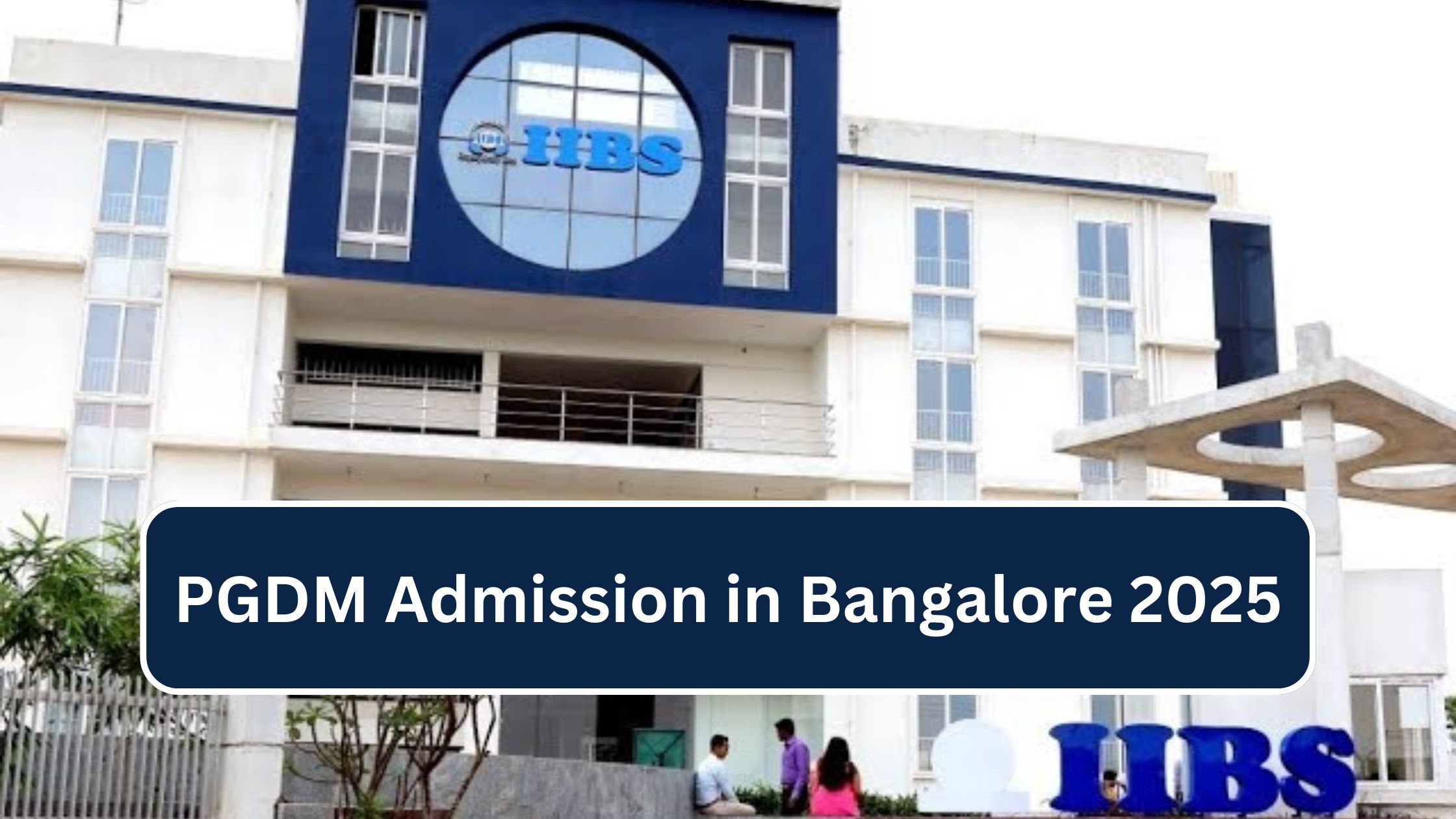Why an MBA in Information Technology?
With the modern era marked by digital transformation, studying for an MBA In Information Technology has become increasingly relevant and rewarding. The coming together of business acumen with technological expertise offers a unique mix of skills equipping professionals to thrive in today"s data world. Whether you are a technology enthusiast looking to expand your managerial horizons or a business professional seeking to deepen your understanding of technology, this program can propel your career to unprecedented heights. In this blog, we will explore the main reasons for pursuing an MBA in Information Technology, its benefits, career prospects, and how it matches the demands of modern industries.
Bridging the Gap Between Business and Technology
One of the core benefits of an MBA in IT is that it bridges the gap between business strategies and technological solutions. Today, businesses rely heavily on technology for operations, marketing, customer engagement, and decision-making in the digital age. Professionals with expertise in both domains can:
Lead digital transformation initiatives.
Translate business objectives into technological solutions.
Manage cross-functional teams effectively.
By understanding both worlds, you can serve as a crucial link between technical teams and business leaders.
High Demand for Tech-Savvy Managers
As more organizations embrace emerging technologies such as AI, cloud computing, big data analytics, and cybersecurity, the demand for technology-savvy managers is increasing. An MBA in IT provides an individual with knowledge and skills on how to manage technology-driven projects, implement IT strategies, and ensure that technological investments are in line with the organizational goals. Companies within all sectors value professionals who can analyze technology"s impact on business, drive innovation through IT solutions, and optimize processes through technology.
This distinct set of skills improves your employability and adds to your value in the job market.
Multiple Career Options
The MBA in IT provides various career opportunities in different sectors. Some of the key positions are as follows:
• IT Manager: This person will oversee the technology infrastructure and ensure smooth IT operations.
• Chief Information Officer (CIO): This position will be responsible for planning and directing the organization"s IT initiatives.
• Business Analyst: This is a bridge between IT capabilities and business requirements.
Data Analyst/Scientist: Derive insights from data through analytical tools.
Product Manager: Manage the lifecycle of a technology-based product.
Consultant: Advise businesses on IT implementation and strategy.
These roles don"t only pay well, but they also provide opportunities for work in dynamic and innovative environments.
Ability to Adapt to a Landscaping That Changes Almost Instantly
Technology is changing at a pace unlike anything before. An MBA in IT trains you to adapt with that kind of change with continuous learning and innovation as your core competencies. Topics in the curriculum include the following:
Emerging trends and technologies.
Strategic IT management.
Change management and leadership in IT.
All this would make one face and be able to transcend the complications of a high-tech world, and ahead of trends in industry.
Better Leadership and Management Skills
While technical expertise is important, leadership and management skills are equally important for career advancement. An MBA in IT focuses on developing:
Strategic thinking.
Decision-making abilities.
Team leadership and collaboration.
Project and resource management.
These skills enable you to take on leadership roles, manage diverse teams, and drive organizational success.
Global Career Prospects
Technology is a language known to everyone, and the worldwide business is using IT to stay ahead of competition. An MBA in IT provides international career opportunities as you can work for the following organizations:
Multinational corporations (MNCs)
Tech start-ups
Consulting firms
Government and public sector agencies
Many MBA programs provide international exposure through international internships, exchange programs, or projects, which gives a holistic view of global business and technology trends.
Focus on Emerging Technologies
Most often, MBA in IT curriculum involves modules such as:
- Artificial Intelligence and Machine Learning: Understanding the ways to leverage AI in driving better decision-making efficiency.
- Big Data Analytics: Ability to decipher and utilize data for strategic advantage.
- Cybersecurity: Discover how best to protect the data and the systems of the organizations.
- Blockchain: Understand its usage in domains other than mere cryptocurrencies
- Cloud Computing: Discover business optimization using cloud solutions.
These subjects not only update you on the latest technological developments but also make you an innovator in your field.
Networking Opportunities
An MBA program offers the best platform to establish a strong professional network. You will interact with:
Peers from diverse professional backgrounds.
Faculty members with industry experience.
Alumni working in top organizations.
These connections can lead to mentoring opportunities, collaborations, and exposure to job openings that are never advertised.
The Attractive Salary Packages
One of the most tempting reasons to pursue an MBA in IT is the potential high earning capacity. Industry reports indicate that professionals with an MBA earn much higher pay compared to those who are not holding an MBA. Contributors to these attractive packages are:
High demand for specialized skills.
Leadership roles requiring technical expertise.
Strategic impact of IT on business profitability.
Entrepreneurial Opportunities
If you have an entrepreneurial mindset, an MBA in IT can be a catalyst to launch your own tech startup. The program equips you with:
Business planning and strategy development skills
Knowledge of funding and investment processes
Insights into leveraging technology for competitive advantage.
Many MBA programs also provide incubators, accelerators, and mentorship opportunities to help you turn your business idea into reality.
Customizable Learning Experience
Most MBA programs offer elective courses or specializations that allow you to tailor your education to your career aspirations. You can focus on areas like:
IT consulting
Digital marketing and analytics
E-commerce and digital platforms
Software project management
This flexibility helps ensure that you gain mastery over the field of interest, all the while building a strong base in business management.
Industry
Industry, also referred to as the Fourth Industrial Revolution, underlines the use of digital technologies integrated into physical systems. The IT MBA program trains you on how to adapt to this change by teaching you:
To implement automation and smart technologies.
Optimization of supply chains using IoT and AI
Improve customer experiences using digital tools.
Being well-versed in these concepts positions you as a forward-thinking professional ready to tackle Industry 4.0 challenges.
Pursuing an MBA in information technology is more than a degree – more of a transformative journey aimed to equip you with the very skills, knowledge, and mental attitude to succeed in that tech-driven world. Being a unique blend of technological expertise and business acumen, it opens doors and avails diverse and rewarding options toward worthwhile careers.
By choosing this path, you position yourself at the intersection of two dynamic fields—business and technology—and set the stage for a career filled with innovation, leadership, and growth. Whether your goal is to climb the corporate ladder, lead digital transformation, or launch your own venture, an MBA in IT can be the catalyst for achieving your aspirations. So, take the leap and embrace a future powered by technology and fueled by business strategy.
For more details on admissions, visit careermantra today and begin your journey with IILM Greater Noida!
Top MBA Colleges in Delhi-NCR |Top MBA Colleges in Pune|Top MBA Colleges in Bengaluru|Top MBA Colleges in Mumbai|Top MBA Colleges in Jaipur|Top MBA Colleges in Lucknow|Top MBA Colleges in Bhopal|Top MBA Colleges in Coimbatore|Top MBA Colleges in Bhubaneswar|Top MBA Colleges in Indore |Top MBA Colleges in Hyderabad|Top MBA Colleges in Hyderabad|Top MBA Colleges in Surat|
For More Updates
 Bennett University, Greater Noida
Bennett University, Greater Noida KIET Deemed to be University, Ghaziabad
KIET Deemed to be University, Ghaziabad I.T.S Dental College, Greater Noida for BDS and MDS
I.T.S Dental College, Greater Noida for BDS and MDS I.T.S College of Health and wellness Sciences, Greater Noida for BPT
I.T.S College of Health and wellness Sciences, Greater Noida for BPT Bennett University, Greater Noida
Bennett University, Greater Noida










